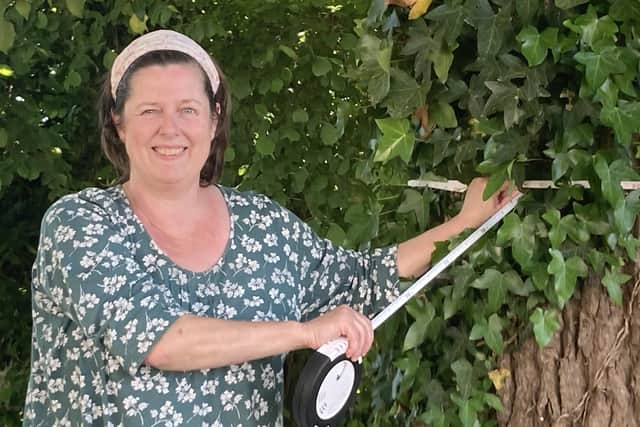Promoting, protecting and planting trees
and live on Freeview channel 276
• How did you become a tree warden and what are the qualifications for the role?
Tree wardens are volunteers under a national scheme set up by The Tree Council, now a charity, in 1990. I became a Tree Warden in 2015. The only qualifications needed are a love of trees and a willingness to learn. Our role is to promote, protect (if reasonable) and encourage planting of trees, with an emphasis on the right tree in the right place (and with the right care). We don’t give advice, and have no special powers, but can be a useful first point of call if someone needs help. Chichester Tree Wardens are part of the West Sussex Tree Warden Network, which was one of the earliest in the country. We cover the Chichester City civic parish area.
• Where did your fascination with trees begin?


Advertisement
Hide AdAdvertisement
Hide AdI would guess as a child, playing with conkers and acorn cups and curious about prickly chestnut and beech seed cases – things I still pick up on walks today. More recently, I’ve realised trees make me happy.
• Why are trees so important, and what should we all be doing to help take care of them?
Trees absorb carbon and produce oxygen, which we breathe. They recycle water, helping to reduce flood risk and, I only recently learnt, transpiring much of it through their leaves – effectively a living air conditioning unit. They trap pollution particles, and can reduce, or distract from, background man-made noise. Research has also shown that we learn better, recover from illness better and feel better when we can see trees. And that trees increase the economic value of where we live, work and socialise. Of course, there can be conflict between people/property and trees, but it’s generally the case that insufficient space has been allowed for the tree to grow, and that needs to be resolved one way or another. The first thing we can do to help trees is to pay attention to them. Our website has a ‘How you can help’ section with ideas of where to go from there.
• Will you tell me about the open event taking place on June 18?
Advertisement
Hide AdAdvertisement
Hide AdWe have a couple of campaigns running at the moment. Our ChiTrees project launches on the morning of Saturday, June 18, with an Information and Training event at Chichester University campus. It aims to recruit volunteers to record trees this summer. They’ll use an app (or web version) to input data on each tree’s species and girth and mark its location on a map. The software then automatically calculates the ecosystem services each tree provides, and their value in economic terms. For anyone who appreciates trees, it’s a way of getting to know the trees around them and being able to help understand their impact. There’s more information on our website, and a volunteer form. We’re also running a fundraiser and inviting suggestions for places to plant more trees. This project is called Mind the Gap. Further information is available at www.treesinchi.org